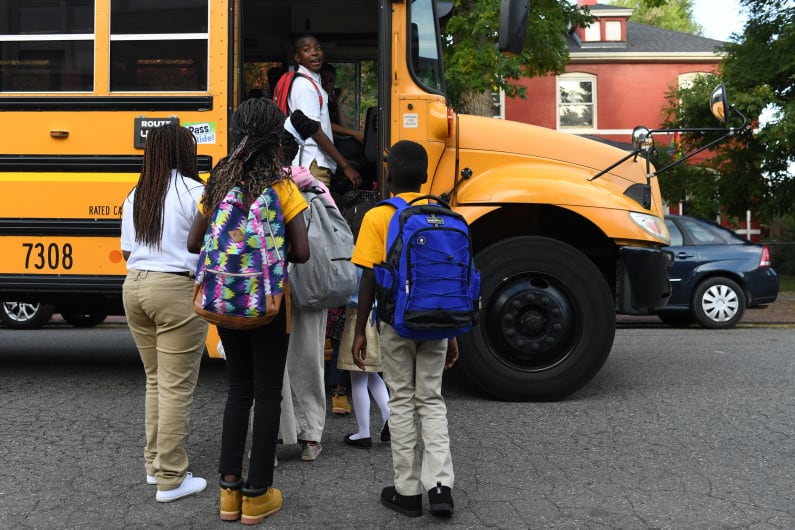Denver Superintendent Alex Marrero doesn’t want a University of Colorado Denver researcher to access student data to study the effects of the previous decade’s education reform policies.
Parker Baxter, who directs the University of Colorado Denver’s Center for Education Policy Analysis, was the lead author of a study released last year that found significant improvements in student test scores and graduation rates during the time Denver Public Schools was most invested in education reform strategies.
Two critiques of the study were that it didn’t isolate the effects of particular strategies, such as closing schools with persistently low test scores or opening new charter schools, and that it didn’t fully account for changes in the student population of Denver, which grew by some 20,000 children during the same time period.
Baxter hopes to address both those concerns and provide better information about which school improvement strategies boosted student academic performance by using student-level data from Denver and 11 comparison districts. Federal student data privacy law allows for this type of research. Individual student data is anonymized and never reported publicly.
“Student-level data is the gold standard and allows for much better disentanglement of improvements due to reform and improvements due to changes in the student population,” Baxter said.
In a May 26 letter to the State Board of Education, Marrero said he has serious concerns about allowing Baxter access to Denver student data. Marrero, who was hired in 2021 by a school board largely opposed to education reform, said Baxter’s first study and his proposed new study ignore the downsides of reform, such as “the impact of school closure on communities, a focus on competition over collaboration and its impact on school staff, to name a few.”
The State Board of Education is set to vote on the request Thursday.
Colorado has strict rules around student data privacy and requires that the State Board of Education review and vote on requests to use data that includes personally identifiable information about students. Since 2016, when the policy was adopted, the State Board has approved nine out of 10 requests, according to Colorado Department of Education spokeswoman Dana Smith.
Smith said in an email that she believes this is the first time a school district has opposed the release of data. A 16-member panel made up of education department staff found the study results would be useful to other school districts considering any of the interventions used in Denver, as well as to the education department.
The decision ultimately rests with the State Board, Smith said.
Starting in the mid-2000s, Denver made it easier for families to exercise school choice, expanded the number of independent charter schools, and gave district-run schools more autonomy. The school board also closed or replaced schools with low test scores.
Whether those policies helped or hurt students and families is hotly debated. The current school board, made up of members backed by the teachers union, no longer closes district-run schools for low academic performance and is less supportive of charter schools. The board has reunified West and Montbello high schools, two schools that were split into multiple small schools during the reform era. The board recently gave honorary diplomas and an apology to students who would have graduated from Manual High School had it not been closed in 2006.
Baxter said his first study was an attempt to bring data to that debate. That study concluded that Denver students got the equivalent of 12 to 12 ½ years of learning in the 11 years from the 2007-08 to 2018-19 school years and that Denver’s graduation rate also increased at a higher rate than it would have if the reforms hadn’t happened.
As of Wednesday afternoon, Denver Public Schools had not responded to a request for comment.
In his letter, Marrero said neither Baxter’s first study nor his proposed study considered other important outcomes, such as improving students’ social and emotional well-being. Nor would it consider the potential impact on student performance of consistent leadership, outside grant money, or efforts to improve education for English learners during the study period.
Marrero wrote that it would be “more beneficial to conduct a comprehensive study that takes into account the many factors that have led to our improved student achievement.”
Baxter said all those topics are worthy of study. His proposed project could inform a larger review that includes other strategies and outcomes. At the same time, test scores and graduation rates form the basis of Colorado’s school accountability system and are appropriate to study.
Specifically, Baxter plans to study the effects of opening new schools, including charter schools, closing schools with persistently low test scores, and providing schools with school improvement grants for district-led turnaround efforts. He hopes to track individual students’ academic progress, dropout and graduation rates, and college enrollment starting four years before Denver held its first call for quality schools in 2008 and continuing through 2019.
Baxter said he is not assuming that every education reform intervention will turn out to have had a positive impact. Studies in other communities have found mixed results from school closures.
“We’re not setting out to prove anything,” Baxter said. “We are seeking answers to questions.”
Bureau Chief Erica Meltzer covers education policy and politics and oversees Chalkbeat Colorado’s education coverage. Contact Erica at emeltzer@chalkbeat.org.





